Election 2022: The politics of personality
It’s hard to think of Barnaby Joyce as the Kamala Harris character of Australian politics. But he is right to decry the presidential style of our campaigns.
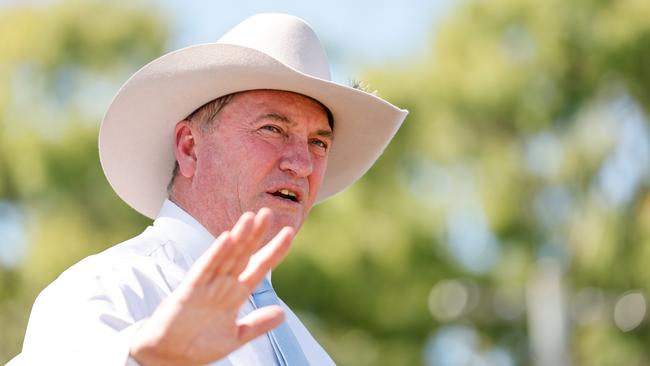
Unsurprisingly, the Deputy Prime Minister and Nationals leader isn’t keen to see himself as the vice-presidential woke leader of a direct presidential system which really doesn’t relate to Australia’s parliamentary structure.
What’s more, Joyce, who has had a rollercoaster ride in politics, who is hated on Twitter and lampooned for his old bush ways, thinks Australia and Australian politics would be better off without the “Hollywood” and travelling “media mosh pits” of the leaders in what has become a campaign style and technique more entrenched in 2022 than ever before.
In a political atmosphere of voter disenchantment, fracturing of traditional party support, the rise of opportunist minor parties and independents who cannot form government, public fatigue after two years of global pandemic, huge regional differences, the absence of any defining policy and a reward for negative attacks, the emphasis on the leaders is only magnifying all these problems.
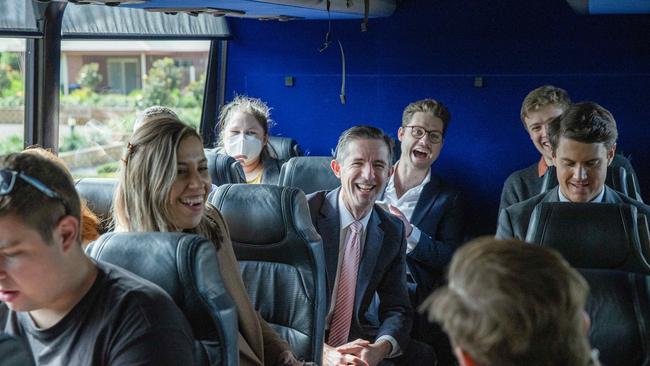
Australians should be voting for the strength of their local member, the policies of the party or candidate of their choice and what they consider best for the nation’s future, not on whether Morrison went on a family holiday to Hawaii or because Albanese talks funny.
The leaders’ characters are an important aspect of elections because leaders do shape governments but they are not presidents of Australia, they are part of a Westminster parliamentary team and tradition which has its own checks and balances as well as responsibilities.
For three years Albanese has made character attacks on Morrison his central political narrative, and at Labor’s campaign launch last weekend, the Opposition Leader referred to Morrison about 20 times – including a specific reference to his “character”.
Since February, Morrison has responded with his own negative attacks on Albanese, his left-wing background and his lack of Treasury experience.
The election advertising from both sides and social media posts from the sidelines have only intensified the trend and flavour of the personalised attacks and left what policy there is on offer as an afterthought.
But, regrettable and distorting as it may be, the distillation of Australian politics into US-presidential is utterly explicable.
As traditional loyalties wane and disruptive forces rise, the primary vote support for the major parties has fallen, meaning the importance of “preferred prime minister” as a leading indicator of victory has risen: since 1983 in Bob Hawke’s win over Malcolm Fraser, no prime minister has lost an election where the incumbent was equal to or better than the opposition leader on the measure of preferred prime minister.
John Howard was behind Kevin Rudd in 2007 when he lost, Tony Abbott was ahead of Rudd in 2013 when he won and, when he just won after a late swing, Malcolm Turnbull was ahead of Bill Shorten in 2016. Critically in 2019, when the polls on party vote suggested Morrison would lose, he was ahead of Shorten as preferred prime minister by nine points. Albanese recognised the importance of Shorten’s failure to negatively frame Morrison in 2019 and set out with a principal aim to do so when he became leader.
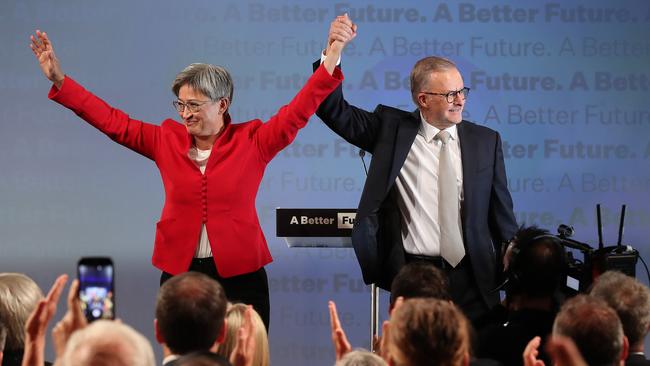
Morrison and Albanese are both unpopular and both lead parties with only mid-30s primary vote support, but all the polls have Morrison ahead of Albanese as better prime minister and Labor faces the history of an unpopular prime minister being re-elected when faced with an even more unpopular opposition leader.
The concentration of political campaigns on the personalities and characters of Morrison and Albanese is explicable, but it is neither welcomed nor apposite to the Australian system.
During a street walk in his own electorate, Joyce and his team were asking people if they were going to vote for him as the local MP for New England – but after finding only people who said they were going to vote for him, the question was changed to: “Will you vote for Scott Morrison or Anthony Albanese?”
One man enthusiastically said he would be voting for Albanese but when asked did that mean he wouldn’t be voting for Joyce he quickly responded: “Oh no, I’m voting for Barnaby”. The presidential system is lost in translation.
Indeed, Joyce, who has been operating under the radar for the first four weeks of the election campaign conducting an old-fashioned country tour to small bush towns and regional centres where he meets people one-on-one at a pub, a pie shop, McDonald’s, the supermarket or church, hopes 2022 will be the end of the presidential campaign. Apart from obviously hoping for a Coalition win, Joyce believes that a campaign victory based on success in regional Australia for local candidates and MPs meeting people in the street would be a “salient wake-up call” for politicians who rely too much on glitzy campaigns, social media and polling.
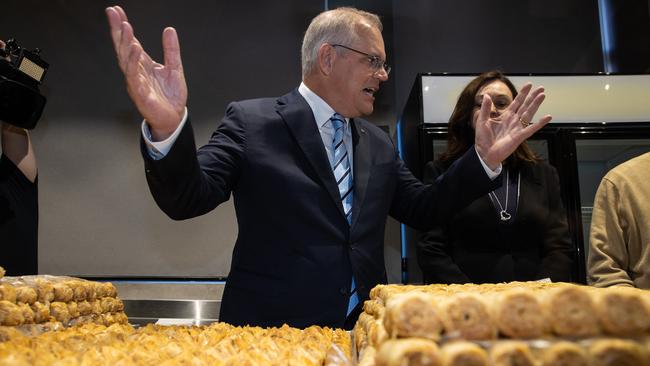
“A win in regional Australia for the Coalition as occurred in 2016 will be a salient wake-up call for Australia and that will be a good thing,” Joyce told Inquirer while lunching, once more on a McDonald’s crispy chicken, a small fries and a chocolate thick shake.
“Scott Morrison and Anthony Albanese can’t do what I am doing because politics has created a US-style presidential election and the leaders travel with a mosh pit of media and people see it arrive and are terrified. “Politics in Australia is incredibly egalitarian and once the crowd is too big it becomes Hollywood and you lose the personal touch.
“You can’t talk to the person in Row 7 at a big meeting, you can only talk to a person beside you.
“You need to understand your market and it is not Twitter and it’s not Instagram, its rational people making rational decisions about the macro understanding of their economy and their nation but also, the micro decision about what you are saying about how that attaches to their everyday life, in their home, in their street, on their farm or in their city.”
At the end of four weeks of campaigning, during which a lone heckler abusing Joyce and threatening his federal police escort was the only national prominence for the Deputy Prime Minister, there is no prospect of a dramatic change in the presidential style and negative attacks of the leaders.
Albanese’s formal Labor launch in Perth on Sunday took bitter aim at Morrison, with various speakers deriding him and seeking to link him to the highly unpopular Clive Palmer in Western Australia as Labor built on the attacks over Morrison’s alleged failings on bushfires, floods, Covid vaccines, pandemic quarantine and the economy.
“In the past three years, through the devastation of bushfires and floods and the once-in-a-century shock of a global pandemic, Australians have been simply magnificent. In the toughest of times, people have stepped up – but their government has let them down,” Albanese said.
“People know Scott Morrison goes missing when the going gets tough,” he said as he pledged to take responsibility and later blamed Morrison for economic failure.
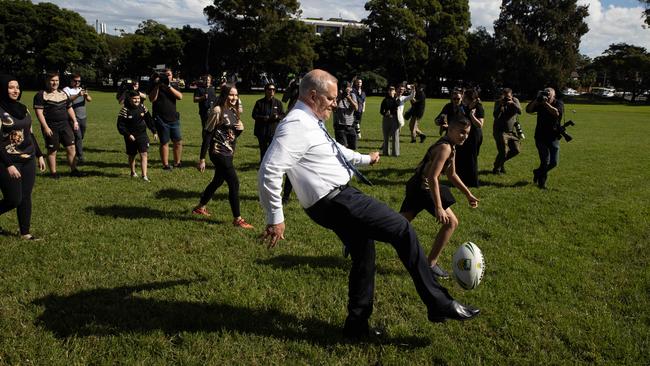
After this week’s interest rate rise from 0.1 to 0.35 per cent on the back of inflation of 5.1 per cent, Albanese declared: “There is a cost of living crisis under Scott Morrison. He presided over a circumstance whereby we have had no real serious wage increases for 10 years, for almost a decade of this government. And we’ve had in the last year a reduction in real wages, we also have rising inflation. And … rising interest rates”.
Morrison’s mantra is that there is a choice between the Coalition and Labor but even more so on the need for economic management at a time of global risk there is a choice between him and Albanese – “a Labor Party whose leader didn’t even know what the unemployment rate was and the cash rate just three weeks ago”.
“It’s not that he just got it wrong, he didn’t know,” he said.
“Who do you think will be better able to manage those pressures? A government that has had an economic plan that has taken us through the worst economic challenges since the Great Depression. Or Mr Albanese, who’s never had a finance portfolio in his entire time in parliament, has never done a budget and an inexperienced Labor team,” Morrison said.
Albanese has worked relentlessly and successfully at making Morrison unpopular, and neither leader has a meaningful reform on offer. But the problem for Labor is that an unpopular prime minister can be re-elected if an opposition leader is seen as second best as prime minister.


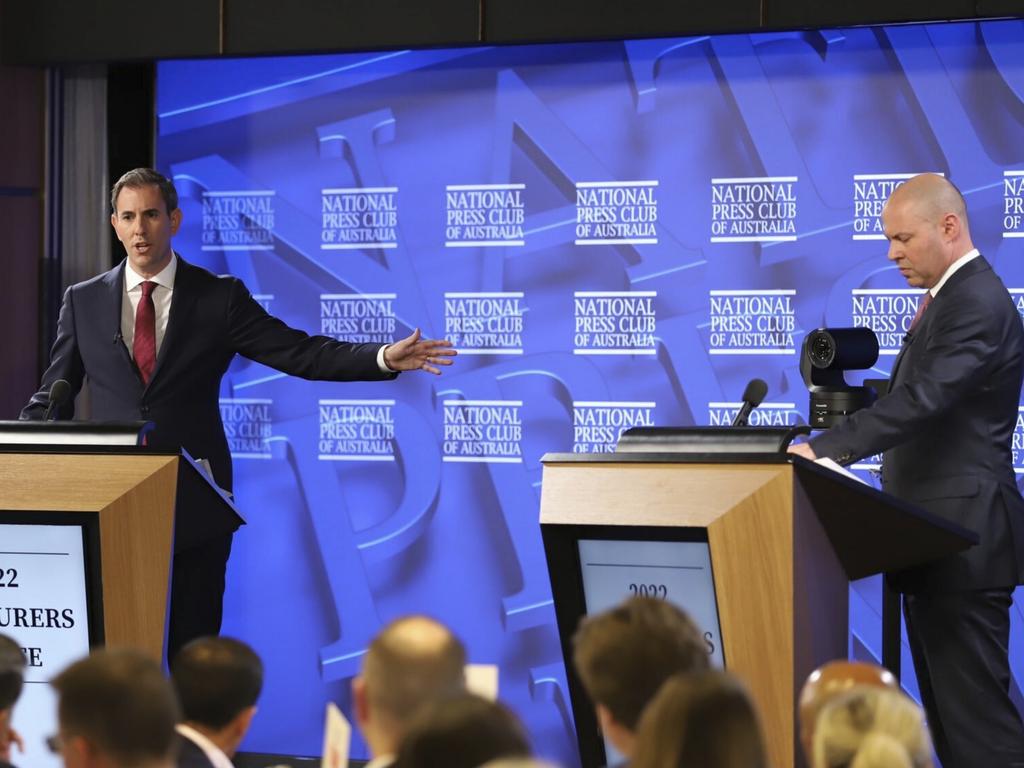
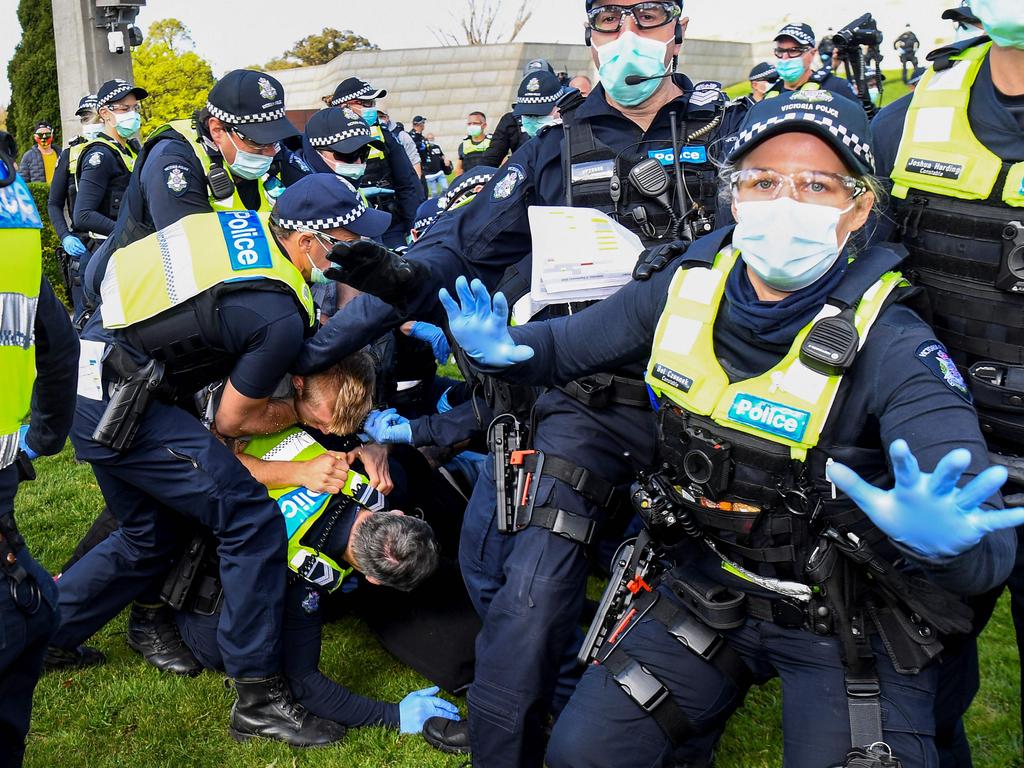
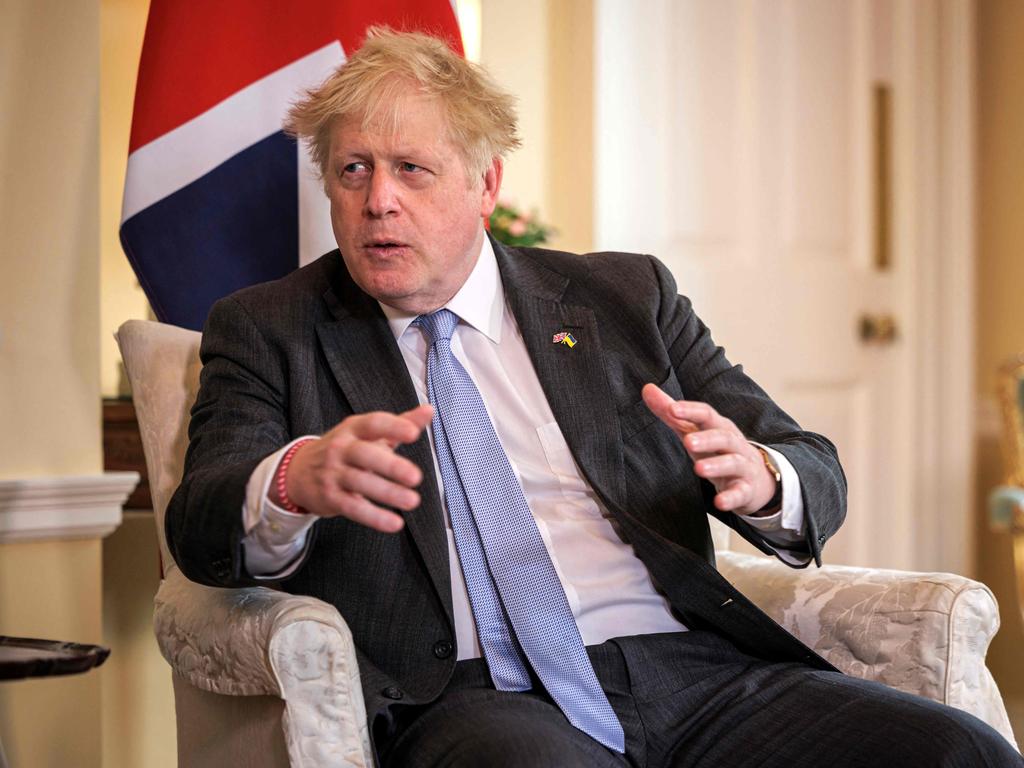
In the 2022 election, dominated by the style of US presidential campaigns – where Scott Morrison and Anthony Albanese as leaders go head-to-head and insult-to-insult every day – it’s hard to think of Barnaby Joyce as the Kamala Harris character of Australian politics.